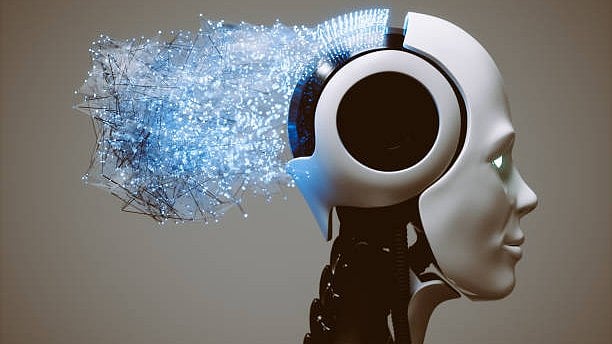
Image for representation.
Credit: iStock Photo
With the advent and rapid advancement of modern science, spearheaded by an Artificial Intelligence (AI) revolution, humanity is staring at a crossroads never seen before in the field of technology. Landmarks have been crossed and milestones have been breached in robotics and machine learning in the past few years. With each passing year, robots are getting increasingly complex, as they are being designed to perform myriad tasks and functions.
Amid such constant buzz surrounding AI and robotics, scientists at the University of California in Berkeley, USA have come up with a ground-breaking technology. This unique and rather mind-bending technology, developed by the reaserchers, allows robots to automatically share their skills and expertise amongst different models in a completely autonomous manner - without any intervention of humans, reports Interesting Engineering.
Known as RoVi-Aug, this framework streamlines robotic training by doing away with the necessity for human involvement in the learning process of robots.
This technology (RoVi-Aug) can work instantaneously with new robots with by virtue of the ability to be trained by enhanced and updated data, which has been reaffirmed after multiple physical tests. In contrast to others, it learns multi-robot tasks, adjusts policy, and omits additional test-time procedures. This increases the effectiveness of skill transfer between the robots and increases success rates by as much as 30 per cent.
The UC Berkeley team involved in this project has revealed that this method is a big step toward creating robots that are more autonomous, independent, and adaptive.
Scaling more data enhances robots' capacity to acquire dependable and broad skills, according to research. However, compared to sophisticated AI models for language and vision, robot data is much lesser. Diverse and practical real-world robot data collection is time-consuming, labor-intensive, and difficult to balance for flexible training.
To improve cross-robot learning, existing models, such as the Open-X Embodiment (OXE) project, aggregate data from 60 robot datasets. By sharing experiences, this method enhances the skills of robots.
However, such technologies also come with a lot of challenges and uncertainties. The threats related to potential dangers of AI are being discussed more and more. How much autonomy is too much autonomy? Such questions cannot be ignored with rising concerns related to the rise of AI.
